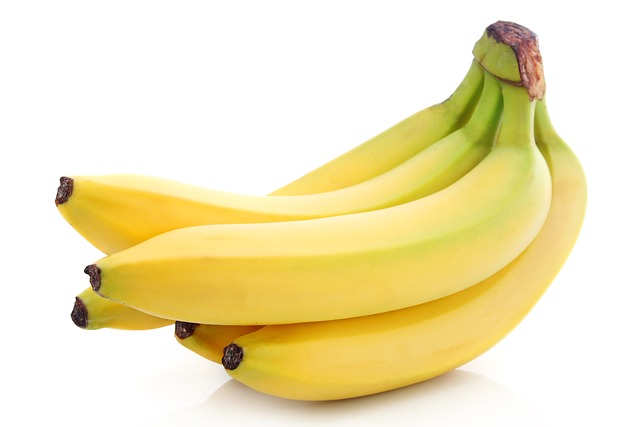The health effects of processed meals, as opposed to unprocessed, natural foods, are becoming an increasingly pressing issue in today’s diet. Better dietary choices and general health can be achieved by learning about the distinctions between different food groups and the effects they have on the body.
What Are Processed and Unprocessed Foods?
Unprocessed Foods: These foods have been minimally processed to retain as much of their natural flavor and nutritional value as possible. Animal goods such as eggs and unprocessed meats are examples, as are fresh produce, nuts, seeds, cereals, and whole grains.
Processed Foods: Foods that have been processed, cooked, frozen, or otherwise changed from its original form by the addition of nutrients, tastes, or preservatives are considered processed foods. Items with little processing, such as pre-washed salad greens, and those with a lot of processing, such as ready-to-eat meals and snack foods, fall into the processing category.
Levels of Food Processing
- Minimally Processed: Foods that have been slightly altered for convenience but retain most of their nutritional value. Examples include bagged spinach, roasted nuts, and frozen fruits.
- Moderately Processed: Foods that have been combined with ingredients like sugar, salt, or fats but still resemble their original form. Examples include canned beans, cheese, and whole-grain bread.
- Heavily Processed: Foods that have undergone significant alterations and often contain added sugars, unhealthy fats, and artificial ingredients. Examples include sugary cereals, fast food, and soda.
Health Impacts of Unprocessed Foods
Nutrient Density: Unprocessed foods are typically rich in essential nutrients like vitamins, minerals, and antioxidants. They provide the body with the raw materials needed for optimal health.
Lower Caloric Density: Whole foods generally have a lower caloric density, meaning they provide fewer calories relative to their volume. This can help in maintaining a healthy weight.
Reduced Risk of Chronic Diseases: Diets high in unprocessed foods are associated with a lower risk of chronic diseases such as heart disease, diabetes, and certain cancers. The high fiber content in these foods also promotes digestive health and can help prevent conditions like constipation and diverticulitis.
Improved Satiety: Whole foods, particularly those high in fiber and protein, tend to be more filling, which can help regulate appetite and prevent overeating.
Health Impacts of Processed Foods
Added Sugars and Unhealthy Fats: The abundance of added sugars and bad fats in processed meals is a known risk factor for diabetes, obesity, and cardiovascular disease. For example, consuming sugary beverages and snacks is a leading cause of calorie excess.
Artificial Ingredients: Chemical preservatives, colors, and flavorings are common in foods that have been through a lot of processing. Negative health effects, including as allergic reactions and behavioral problems in children, have been associated with some of these chemicals.
Reduced Nutritional Value: Processing can strip foods of their natural nutrients. For example, refining grains removes the bran and germ, leading to a loss of fiber, vitamins, and minerals.
Increased Caloric Density: Many processed foods are calorie-dense, meaning they contain a high number of calories in a small volume, which can lead to weight gain if consumed in excess.
Higher Sodium Content: Processed foods are often high in sodium, which can lead to hypertension and increase the risk of heart disease and stroke.
Making Healthier Choices
Prioritize Whole Foods: Base your diet around fresh fruits, vegetables, whole grains, lean proteins, and healthy fats. These foods provide the most nutritional bang for your buck and support overall health.
Read Labels: When choosing processed foods, read the ingredient list and nutrition facts. Aim for products with fewer ingredients, and avoid those with added sugars, trans fats, and high sodium levels.
Cook at Home: Preparing meals at home allows you to control the ingredients and cooking methods, making it easier to avoid heavily processed foods.
Limit Convenience Foods: Reduce your intake of ready-to-eat meals, sugary snacks, and fast food. These items are often high in unhealthy fats, sugars, and artificial additives.
Stay Hydrated with Water: Opt for water instead of sugary beverages. Hydration is crucial for health, and water is the best choice for staying hydrated without added calories or sugars.
Conclusion
Making better food choices requires an understanding of the difference between processed and unprocessed foods. The health risks associated with processed foods are substantial, despite their convenience. Better health, a lower risk of chronic diseases, and enhanced well-being can result from prioritizing unprocessed, whole meals. Improving your health can be as simple as making tiny, regular changes to your diet to include more whole, unadulterated foods.
For further information on healthy eating and food processing, resources such as the Harvard T.H. Chan School of Public Health and the Mayo Clinic offer comprehensive insights and guidelines.


Pingback: Is Your Gut Healthy? How to Identify, Repair, and Boost Gut Health Naturally - Wellness Readers Digest
Pingback: The Ultimate Guide to High-Fiber Foods and Their Benefits - Wellness Readers Digest